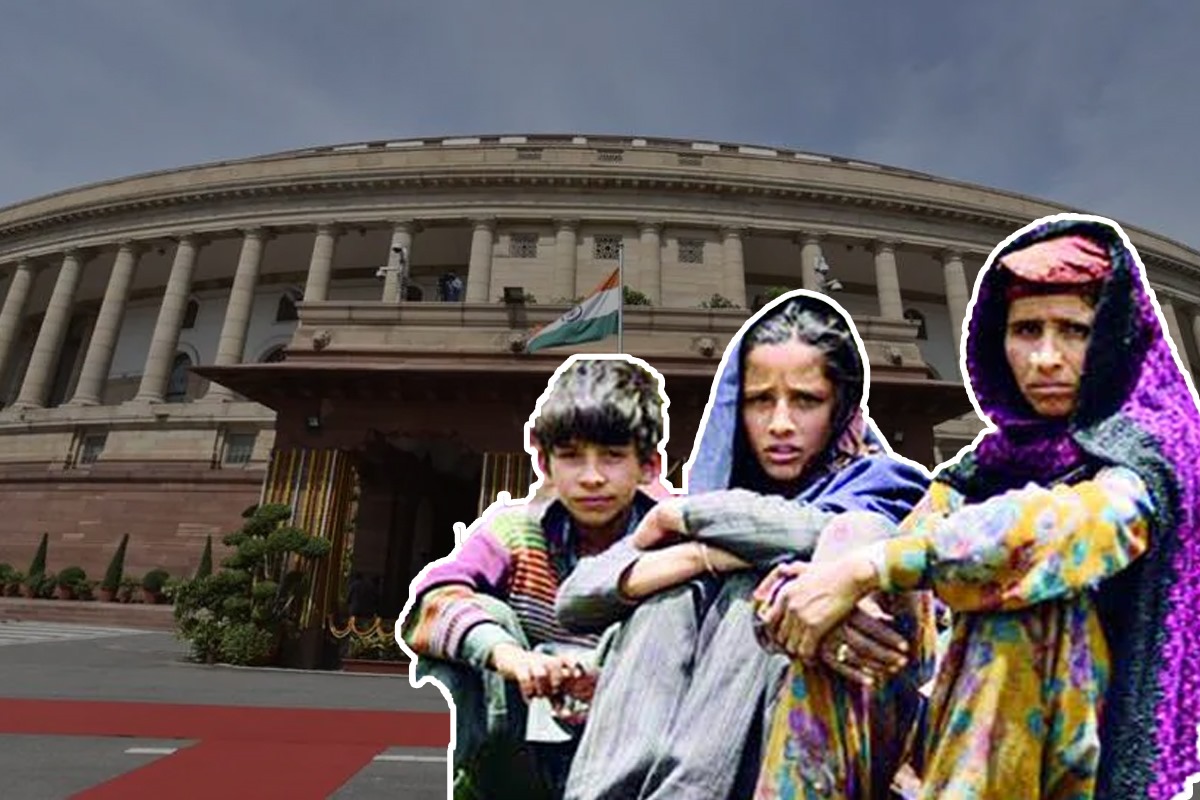SRINAGAR: Lok Sabha on Tuesday approved three crucial bills for Jammu and Kashmir, including one granting Scheduled Tribe status to Pahari Ethnic Group, Paddari tribes, Koli, and Gadda Brahmins. Another bill provides reservations for Other Backward Classes (OBCs) in Panchayats and Municipalities, while the third aims to include Valmikis in the Scheduled Castes (SCs) list. These bills will now move to the Rajya Sabha for consideration and approval.
The MHA official statement mentioned that Lok Sabha passed the Constitution (Jammu and Kashmir) Scheduled Tribes Order (Amendment) Bill, 2024.
READ MORE: Parliament tables bill for OBC quota in J&K Local Bodies
“The landmark bill seeks to empower the Pahari Ethnic Group, Padari Tribes, Koli, and Gadda Brahmins by granting them Scheduled Tribe status—a longstanding demand of these communities,” stated the release.
The Bill aims to amend the 1989 Constitution (Jammu and Kashmir) Scheduled Tribes Order, establishing distinct lists for Scheduled Tribes in Jammu and Kashmir, and Ladakh. Additionally, Lok Sabha passed The Constitution (Scheduled Castes) Order (Amendment) Bill, 2024, incorporating the Valmiki community as synonyms for Chura, Balmiki, Bhangi, and Mehtar communities in the Scheduled Castes list for Jammu and Kashmir. This bill seeks to amend the 1956 Constitution (Jammu and Kashmir) Scheduled Castes Order, listing the communities considered Scheduled Castes in the Union Territories of Jammu, Kashmir, and Ladakh.
The government has contemplated including Paharis for a few years. However, the Gujjar-Bakarwal community strongly opposes it, contending that Paharis, being a forward caste, could displace benefits meant for Gujjar-Bakarwal and other marginalized ST communities if included in the ST list.
The Gujjar-Bakarwal community in Jammu and Kashmir has been continuously protesting. Numerous students from these communities staged street protests in Jammu on Tuesday, and Jammu University students also held a protest the previous night.
While talking to The New Indian Advocate Guftar Ahmad Chowdhary, a tribal activist said “ BJP has destroyed the idea of reservation by adding upper castes in the scheduled tribe. Gujjar Bakarwal Community of J&K is deeply disheartened. Rajput, Gupta, Mahajan, Mirza, Malik, Syed are not schedule tribes they are upper castes of J&K.”
He said, “This is happening first time in the history of India that the govt has added communities on linguistic bases just to gain some votes.”
He added, “Gujjar Bakarwal Community strongly oppose this decision and take this matter to the Supreme Court”.
In response to the bill debate, Minister for Social Justice and Empowerment Virendra Kumar highlighted equality in Jammu and Kashmir after the revocation of Article 370. He noted that previous administrations treated Scheduled Caste individuals merely as a vote-bank. Furthermore, he affirmed that the Government would not discontinue pre-matric and post-matric scholarships for SC students.
Union Minister of State for Home Nityanand Rai stated that the people of Jammu and Kashmir are now experiencing the benefits of development initiated by Prime Minister Narendra Modi’s government. Presently, there is no provision for reserving seats for OBCs in Panchayats and Municipalities in Jammu and Kashmir.
During the bill discussion, MP Hasnain Masoodi of the J&K National Conference criticized the Union government for not specifying how it would safeguard the benefits for Gujjar-Bakerwal. He reiterated their clear stance supporting ST status for Paharis, conditioned upon no dilution of existing ST rights or quotas. The government, however, has not provided specific clarification on protecting the rights of existing STs post the inclusion of Paharis in the list.
Jugal Kishore Sharma, BJP MP from Jammu, expressed that the bill ensures justice for OBCs. Chinta Anuradha from YSRCP deemed it a progressive legislation, anticipating improved efficiency in the election process for local bodies, including Panchayats. Other participants in the debate included Pratap Jadhav (Shiv Sena), Navneet Rana (Ind), Kaushalendra Kumar (JD-U), Ramesh Bidhuri (BJP), Veeraswamy Kalanidhi (DMK), N K Premachandran (RSP), and Adhir Ranjan Chowdhury, Ve Vaithilingam (both Congress).









